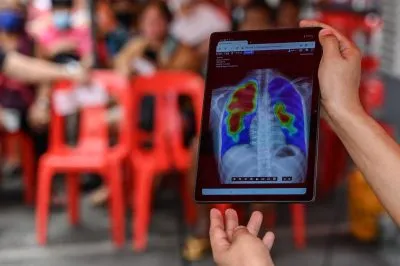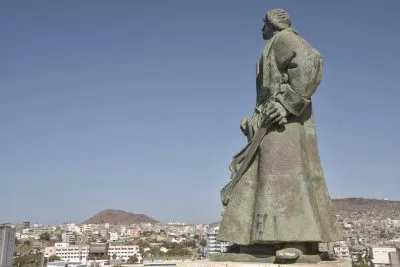Burkina Faso’s military arrested President Roch Kabore on Monday, suspended the constitution, and dissolved the government and parliament.
In a televised statement on Monday, Captain Sidsore Kader Ouedraogo cited the “ongoing degradation of the security situation” in the country and the “incapacity of the government” to unite the population as the driving forces of the takeover.
Lieutenant Colonel Paul-Henri Damiba, a senior military officer was pronounced the nation’s new leader.
The mutiny marks the fourth military coup in West and Central Africa in the past year, with coups in Mali, Chad and Guinea.
Low literacy rates across the region are stifling growth and development and breeding discontent, says Charlie Robertson from Renaissance Capital.
“We expect coups, conflict and instability in low adult literacy countries and regions. The common theme related to this is that low adult literacy means countries cannot grow sustainably (as we explained in our 2017 report) and coup leaders exemplify the exasperation of a population that is deeply unhappy with the status quo.”
Literacy in Burkina Faso stands at 40%, and 35% in Mali, with Guinea at 32% and Chad at 22% in 2016, according to UNESCO.
Military frustrations
Growing insecurity in Burkina Faso’s northern border with Mali and Niger is fanning discontent as civilian death tolls spiral. Up to 1.4 million people were displaced by the conflict in 2021, representing more than 6% of the population.
Real GDP grew by a mere 1.9% in 2020, while inflation rose 3.2%. Spiralling security costs and the pandemic shock widened the fiscal deficit to 5.7% in 2020 (3.2% in 2019), according to the World Bank. 40.1% of the population lives below the poverty line.
Gunfire erupted early on Sunday in the capital Ouagadougou when soldiers seized control of a military barracks in the capital in a spat over the government’s allocation of resources in the battle against ISIS and ISIL.
Early Tuesday morning several dozen people converged on Place de la Nation in the center of the capital, where a demonstration in support of the military is scheduled for the morning.
Following the coup, Burkina Faso’s army shut its borders with neighbouring Mali, Côte d’Ivoire, Benin, Nigeria, Niger and Guinea.
Robertson says he’d be surprised if the country’s borders with its north-westerly neighbour Mali remained closed.
Four coups since 2021
The ousting of Roch Marc Christian Kaboré – in power since 2015 and re-elected in 2020 – followed waves of protests in recent months surrounding frustration about spiralling deaths of civilians and soldiers by armed groups, some of which were associated ISIL (ISIS) and al-Qaeda. Kaboré won the presidential election in November 2020, and the ruling People’s Movement for Progress (MPP) party and its allies held a comfortable majority in the National Assembly.
Up until 2020 West Africa seemed to have shed its reputation as ‘the Coup Belt’ but the onset of Covid-19 and domestic factors have signalled a dispiriting new era of military coups.
In September, Guinean President Alpha Condé was deposed by the self-styled National Committee for Reorientation and Development, a military junta which dissolved the government and constitution after removing senior public officials from office.
The coup was West Africa’s third in the last year, after a recent military takeover in Mali and allegations of a “dynastic coup” in Chad following the army’s appointment of President Idriss Déby’s son after the former’s death in combat.
International backlash
Meanwhile S&P Global Ratings cut Burkina Faso’s sovereign credit rating deeper into “junk” territory, to ‘CCC+/C’ from ‘B/B’ on Wednesday following military coup, and placed its outlook on review from a previous status of ‘stable’.
South Africa’s government condemned the coup and called on the military to return to their barracks and restore democracy.
With the whereabouts of the president unknown, United Nations’ Secretary-General António Guterres called on coup leaders to lay down their arms and ensure president Kabore’s safety.
A tweet posted to the president’s twitter account called for dialogue and restraint.
“Our nation is going through difficult times,” the tweet said. “We must in this precise moment, preserve our democratic achievements. I invite those who took arms to lower them in the superior interest of the nation. It is through dialogue and listening that we must resolve our contradictions.”
Before the army announced the takeover, the Economic Community of West African States (ECOWAS) regional bloc and the African Union both slammed the “attempted coup”.
“ECOWAS is following with great concern the evolution of the political and security situation in Burkina Faso, characterised since Sunday 23 January by an attempted coup d’état,” the bloc said.
Want to continue reading? Subscribe today.
You've read all your free articles for this month! Subscribe now to enjoy full access to our content.
Digital Monthly
£8.00 / month
Receive full unlimited access to our articles, opinions, podcasts and more.
Digital Yearly
£70.00 / year
Our best value offer - save £26 and gain access to all of our digital content for an entire year!

 Sign in with Google
Sign in with Google 



